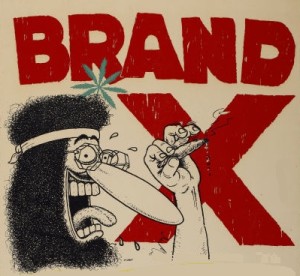 Durban – A Scottburgh pensioner whom doctors expected to die from cancer last year but now feels stronger thanks to a dagga-based oil, is scheduled to lead Saturday’s Global Cannabis Day in Durban.
Durban – A Scottburgh pensioner whom doctors expected to die from cancer last year but now feels stronger thanks to a dagga-based oil, is scheduled to lead Saturday’s Global Cannabis Day in Durban.
Until last year, Harry du Plessis always considered the illegal herb “a no-no”.
“I never smoked, I never drank except for half a glass of champagne when I got married and a beer shandy once when I went fishing,” he told The Independent on Saturday.
Why would this 77-year-old indulge in the extracts of an illegal plant and campaign for it to be made legal to use in all its forms?
Two years ago, doctors diagnosed him with prostate cancer, then late last year tests revealed he also had a cancerous liver on top of high blood pressure and diabetes. The cancer was at stage four.
“Also my kidneys weren’t functioning lekker but that wasn’t cancer.”
Six specialists attended to him at a Joburg hospital and told his children “make your dad comfortable”.
“I wasn’t aware of most of what was going on,” Du Plessis said.
“I don’t know if they discharged me, if they had done all they could for me, or if my medical aid ran out.”
His family flew in from Australia, Austria and the KwaZulu-Natal South Coast, understanding that conventional treatment could do no more and that they would soon be bidding him farewell.
Later Du Plessis felt he needed oxygen but to get the gas he would have had to once again be admitted to hospital. Instead, his family relocated him to Scottburgh where it’s easier to breathe at sea level. They also put him straight on to cannabis oil.
“When I started taking it I thought I would die. It was like shock treatment. You have to get used to it,” he recalled.
De Villiers started on a drop a day. Now he takes a gram. The substance keeps his body from becoming acidic, he said.
“Cancer cannot survive in a non-acidic environment,” said a family member who did not wish to be named.
“So it involves watching the body’s pH levels. It’s like looking after a swimming pool.”
The march aims to get the message across that dagga should be legalised, for both medicinal and recreational purposes.
Although De Villiers uses it only for the former, acquiring his oil involves going underground because it is an illegal substance.
People who sell it charge only those who can pay for it, and often give it out free, simply because they want to help others, said Sarah-Jane Bow, convener of the Durban march, which is one of 241 scheduled to be held globally.
She said Saturday’s march, which is to start at 11am at Botha’s Garden and end at the City Hall, would involve the handing over of a petition calling for dagga to be legalised.
Earlier this year, IFP MP Mario Oriani-Ambrosini, himself a cancer sufferer, called for the legalisation of marijuana for medicinal use.
“I was supposed to die many months ago and I am here because I had the courage of taking illegal treatments in Italy in the form of bicarbonate of soda and here in South Africa in the form of cannabis, marijuana or dagga. Otherwise I would be pumped with morphine and I would not be able to speak to you Mr President,” he said in Parliament.
In November a national working group made presentations to Health Minister Aaron Motsoaledi on the subject.
“What this paperwork stands for is the proposition that there is no rational argument for continuing to deprive people like me who need medical marijuana,” Oriani-Ambrosini said.
“It is a crime against humanity not to allow that to take place.”
 Bow said she believed that if dagga was at least legal to grow to make concoctions such as cannabis oil, the cost of this alternative cancer treatment could come down radically.
Bow said she believed that if dagga was at least legal to grow to make concoctions such as cannabis oil, the cost of this alternative cancer treatment could come down radically.
“When someone in a family gets to the stage where they are so sick, that’s when the calls come through. We have to push to get the laws changed, to prevent early deaths.”
Bow, who also hails from Scottburgh, said there needed to be a debunking of the myth that dagga was a gateway drug to other drug use.
But the SA National Council for Drug and Alcohol Abuse (Sanca) in Durban disagreed.
“It is of the utmost importance to take into consideration that marijuana is not harmless,” director Carol du Toit said.
“The fact that one third of all patients treated at Sanca nationally in the past year used marijuana alone or with other substances testifies to this.
“International studies strongly support evidence that marijuana is the ‘gateway drug’ to other drug abuse.”
Written by Duncan Guy and published at The Independent, May 3, 2014.
FAIR USE NOTICE: This site contains copyrighted material the use of which has not always been specifically authorized by the copyright owner. We are making such material available in our efforts to advance understanding of environmental, political, human rights, economic, democracy, scientific, and social justice issues, etc. We believe this constitutes a ‘fair use’ of any such copyrighted material as provided for in section 107 of the US Copyright Law. In accordance with Title 17 U. S. C. Section 107, the material on this site is distributed without profit to those who have expressed a prior interest in receiving the included information for research and educational purposes. For more information go to: http://www. law. cornell. edu/uscode/17/107. shtml“
